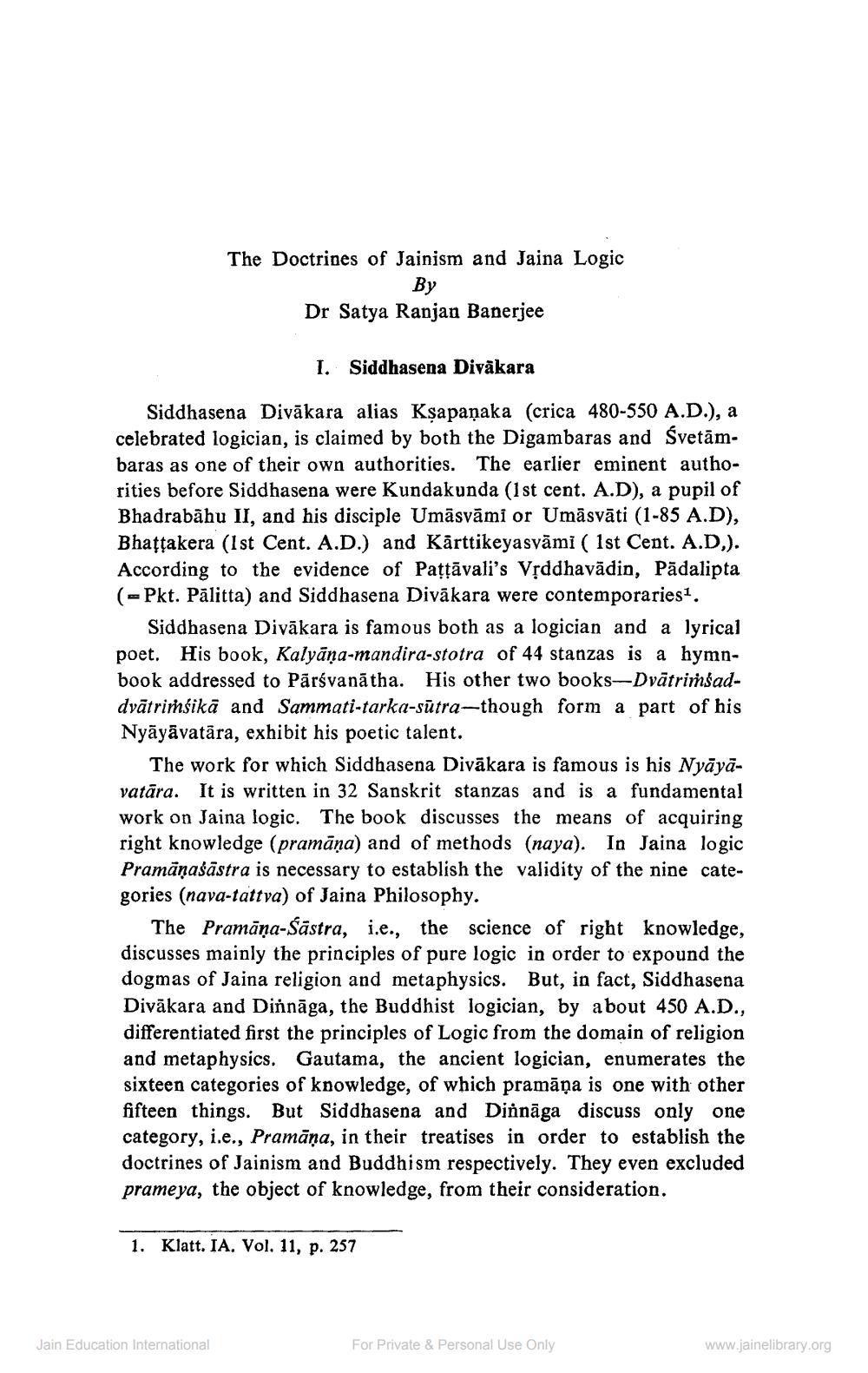Book Title: Nyayavatara Author(s): Satyaranjan Banerjee Publisher: Sanskrit Book Depot P Ltd View full book textPage 7
________________ The Doctrines of Jainism and Jaina Logic Ву Dr Satya Ranjan Banerjee 1. Siddhasena Divakara Siddhasena Divākara alias Ksapaņaka (crica 480-550 A.D.), a celebrated logician, is claimed by both the Digambaras and Svetāmbaras as one of their own authorities. The earlier eminent authorities before Siddhasena were Kundakunda (1st cent. A.D), a pupil of Bhadrabāhu II, and his disciple Umāsvāmi or Umāsvāti (1-85 A.D), Bhattakera (1st Cent. A.D.) and Kärttikeyasvāmi ( 1st Cent. A.D,). According to the evidence of Pattāvali's VỊddhavādin, Padalipta (- Pkt. Pālitta) and Siddhasena Divākara were contemporaries. Siddhasena Divākara is famous both as a logician and a lyrical poet. His book, Kalyāņa-mandira-stotra of 44 stanzas is a hymnbook addressed to Pārsvanātha. His other two books--Dvātrimsaddvātrimśikā and Sammati-tarka-sūtra-though form a part of his Nyāyāvatāra, exhibit his poetic talent. The work for which Siddhasena Divākara is famous is his Nyāyāvatāra. It is written in 32 Sanskrit stanzas and is a fundamental work on Jaina logic. The book discusses the means of acquiring right knowledge (pramāna) and of methods (naya). In Jaina logic Pramāņaśāstra is necessary to establish the validity of the nine categories (nava-tattva) of Jaina Philosophy. The Pramāna-Sastra, i.e., the science of right knowledge, discusses mainly the principles of pure logic in order to expound the dogmas of Jaina religion and metaphysics. But, in fact, Siddhasena Divākara and Dinnāga, the Buddhist logician, by about 450 A.D.. differentiated first the principles of Logic from the domain of religion and metaphysics. Gautama, the ancient logician, enumerates the sixteen categories of knowledge, of which pramāņa is one with other fifteen things. But Siddhasena and Dinnāga discuss only one category, i.e., Pramāņa, in their treatises in order to establish the doctrines of Jainism and Buddhism respectively. They even excluded prameya, the object of knowledge, from their consideration. 1. Klatt. IA. Vol. 11, p. 257 Jain Education International For Private & Personal Use Only www.jainelibrary.orgPage Navigation
1 ... 5 6 7 8 9 10 11 12 13 14 15 16 17 18 19 20 21 22 23 24 25 26 27 28 29 30 31 32 33 34 35 36 37 38 39 40 41 42 43 44 45 46 47 48 49 50 51 52 53 54 55 56 57 58 59 60 61 62 63 64 65 66 67 68 69 70 71 72 ... 78
